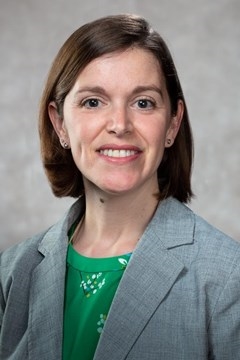U of A professor Gema Zamarro's work on the gender effects of COVID-19 has now helped inform policy decisions at the federal and local level.
The Department of the Treasury mentioned her research in a ruling implementing the Coronavirus State Fiscal Recovery Fund and the Coronavirus Local Fiscal Recovery Fund established under the American Rescue Plan Act. The county of Kaua'i in Hawaii cited her findings in a resolution about urging equity, inclusion and social and economic justice principles in COVID-related recovery initiatives.
Both decisions cited Zamarro's research brief, Gender differences in couples' division of childcare, work and mental health during COVID-19, which laid out how women have carried a larger share of childcare responsibilities than men during the crisis.
"This has been a very difficult time for me because of the pandemic," said Zamarro, who holds the Department of Education Reform's 21st Century Endowed Chair in Teacher Quality at the U of A. "Doing research that I felt was important has kept me going. Seeing it make a difference in policy means so much."
Zamarro's latest gender study, entitled, "Gender Gaps in Math Performance, Perceived Mathematical Ability and College STEM Education: The Role of Parental Occupation," was published on Monday in Education Economics.
The study found that girls raised by parents in science-related fields are more likely to major in STEM — science, technology, engineering or mathematics — in college.
Researchers included Zamarro, education reform department graduate Lina Anaya Beltran and Frank Stafford, an economics professor at the University of Michigan.
They used data from the Panel Study of Income Dynamics — the longest running longitudinal household survey in the world — to study the role of gender differences in achievement and self-perceived ability in math during childhood, along with parents' occupation in the subsequent decision of majoring in science in college.
Women remain underrepresented in some STEM occupational fields and the findings suggest a loss in STEM enrollment by otherwise qualified young women, Zamarro noted.
"This work shows how gender differences and stereotypes are present from an early age and how they affect girls during their lives," she said. "I think the current COVID-19 crisis is unmasking these gender differences that were already present in our society."
Zamarro also earned national attention this week for her research report on teacher turnover intentions during the pandemic.
The Brookings Institution, a nonprofit public policy organization based in Washington, D.C., featured findings by Zamarro and several co-authors on its website recently as part of "The Brown Center Chalkboard" series. They were also invited to write an article at The Conversation to share the results of the research brief series and will be doing so in the coming weeks. The findings center around how the pandemic has changed teachers' commitment to remaining in the classroom.
"The current COVID-19 pandemic has the potential to exacerbate inequalities and problems in our society," Zamarro said. "I am hoping that with this work, I am able to inform policies to reduce the adverse effects of this crisis."
Contacts
Shannon G. Magsam, director of communications
College of Education and Health Professions
479-575-3138, magsam@uark.edu
